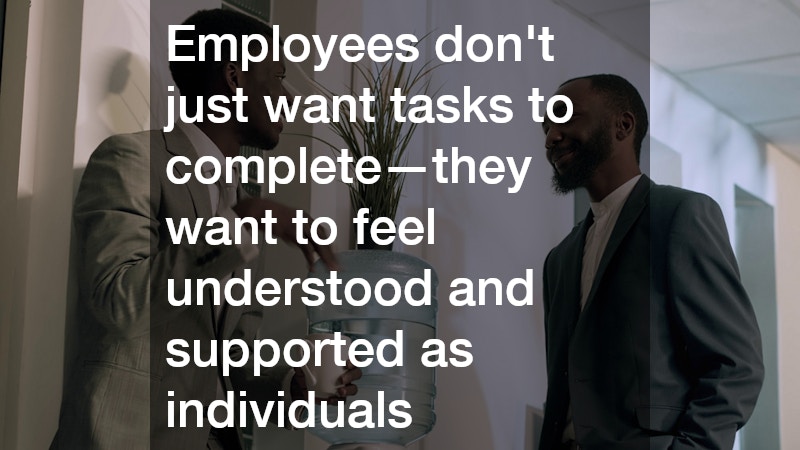In today’s fast-paced work environment, leadership isn’t just about hitting targets or managing projects. More than ever, the “soft skills” of leaders—the personal attributes and interpersonal skills—are the secret sauce that drives employee engagement and keeps top talent from walking out the door. But what exactly are these soft skills? And how do they influence engagement and retention?
Let’s dive into the leadership soft skills that matter most and how you can start building them to foster a motivated, loyal workforce.
What Are Leadership Soft Skills?

Leadership soft skills are the personal qualities and interpersonal abilities that define how leaders engage, inspire, and influence their teams. Unlike hard skills—such as budgeting, data analysis, or technical know-how—that are measurable and specific, soft skills are intangible and revolve around emotional intelligence and human connection.
Why are these important? Because leadership isn’t just about telling people what to do. It’s about how you lead by example in your interactions with people, how you handle situations, and how you make others feel valued and understood. These skills form the foundation of trust and respect in any team.
Here are some key examples:
- Empathy: The ability to genuinely understand and share the feelings of your team members. Empathy helps leaders tune into employee concerns, motivations, and challenges.
- Communication: More than just talking, it’s about delivering clear messages, listening actively, and encouraging open dialogue to ensure everyone is on the same page.
- Adaptability: The skill to adjust your approach and mindset in response to changing circumstances, new information, or unexpected challenges—keeping the team steady through uncertainty.
- Conflict Resolution: The ability to address disagreements and tensions constructively, turning potential disruptions into opportunities for growth and understanding.
- Active Listening: Engaging fully when others speak—without interrupting or rushing to judgment—to truly comprehend their perspective and respond thoughtfully.
Together, these soft skills shape the culture of your workplace. They help create an environment where employees feel safe, motivated, and appreciated—key ingredients for long-term engagement and retention.
Why Are Soft Skills Essential for Employee Engagement?
Employee engagement is much deeper than a paycheck or surface-level job satisfaction. It’s the emotional connection employees feel toward their work, their team, and the company’s mission. Engaged employees are enthusiastic, committed, and willing to go the extra mile.
Here’s why soft skills from leadership are vital to sparking this kind of engagement:
- Building Trust: When leaders consistently demonstrate honesty, transparency, and understanding, employees feel they can rely on them. This trust lays the groundwork for engagement.
- Fostering Open Communication: Soft skills encourage two-way conversations. When employees know their voices matter and that their feedback is welcomed, they feel more involved and invested.
- Recognizing and Addressing Needs: Soft-skilled leaders are tuned in to the unique needs and challenges of each employee—whether it’s career development, work-life balance, or conflict resolution. This responsiveness boosts morale.
- Creating Supportive Culture: When leaders model empathy and respect, it trickles down through the team, creating a workplace where people want to contribute and collaborate.
Without these skills, teams can become disengaged quickly. Even the most talented employees can feel overlooked, disconnected, or undervalued—setting the stage for turnover.
Which Soft Skills Specifically Impact Retention?
Keeping great employees is one of the toughest challenges businesses face. High turnover costs time, money, and momentum. Here are the key soft skills leaders need to retain their best talent:
1. Empathy: Understanding the Employee Experience
Employees don’t just want tasks to complete—they want to feel understood and supported as individuals. Empathy allows leaders to step into their shoes.
- Emotional Connection: Employees who feel their leaders genuinely care are more likely to develop loyalty and stay through challenges.
- Personalized Support: Empathetic leaders can identify when someone’s overwhelmed or struggling and adjust workloads or offer help.
- Authenticity and Safety: When employees know it’s okay to be themselves, they’re more engaged and less likely to leave.
2. Communication: Clear, Consistent, and Two-Way
Communication is a two-way street. It’s not just about delivering orders, but about building understanding and trust.
- Reduces Anxiety: Clear information about goals, expectations, and changes helps employees feel secure.
- Encourages Feedback: When employees feel heard, they’re more likely to bring up concerns before they escalate.
- Aligns Purpose: Transparent communication connects individual work to the company’s bigger mission, inspiring commitment.
3. Adaptability: Navigating Change Gracefully
In a world where business environments shift rapidly, employees want leaders who can stay calm and pivot when necessary.
- Security Through Uncertainty: Adaptable leaders reduce fear by modeling resilience.
- Promotes Innovation: Flexibility invites new ideas and approaches, keeping the team dynamic and future-ready.
- Prevents Frustration: Resistance to change can drive employees away; adaptable leaders ease transitions smoothly.
4. Conflict Resolution: Turning Challenges Into Growth
Conflict is inevitable, but poorly managed conflict harms morale and drives people out.
- Preserves Team Harmony: Addressing issues early keeps small disagreements from becoming bigger problems.
- Validates Employee Concerns: When leaders listen and mediate fairly, employees feel respected.
- Builds Trust: Handling conflicts with fairness strengthens respect for leadership.
5. Active Listening: Making Employees Feel Heard
Active listening means fully engaging with what employees say, without interrupting or rushing to respond. It’s about understanding their perspective and emotions.
- Builds Trust: Employees who feel truly heard develop stronger loyalty and trust in their leaders.
- Identifies Early Warning Signs: Careful listening helps leaders catch concerns or frustrations before they escalate.
- Encourages Openness: When employees know their voices matter, they’re more likely to share feedback and ideas.
- Strengthens Relationships: Deep listening fosters a sense of connection, making employees feel valued and less likely to leave.
How Can Leaders Develop These Soft Skills?
The good news? Soft skills aren’t fixed. You can nurture and grow them with practice and intention. Here’s how:
Practice Active Listening
- Give people your full attention—put away distractions like phones or laptops.
- Ask questions that clarify what the speaker means, avoiding assumptions.
- Reflect back what you hear (“What I’m hearing is…”) to confirm understanding.
Show Authentic Empathy
- Spend time learning about employees’ lives beyond work—interests, goals, challenges.
- Watch for signs of stress or disengagement and check in early.
- Offer help without judgment or pressure, creating a supportive atmosphere.
Communicate Regularly and Transparently
- Hold frequent one-on-one meetings to connect personally.
- Share both good news and challenges openly; honesty builds credibility.
- Encourage questions and actively solicit feedback to keep communication flowing.
Embrace Flexibility
- Stay open to new ways of working and be willing to adjust your style.
- During changes, maintain a calm, positive outlook to inspire confidence.
- Foster a culture of continuous learning and growth mindset in your team.
Learn Conflict Management Techniques
- Don’t avoid conflicts; face them promptly before they escalate.
- Facilitate respectful conversations where all sides can express their views.
- Seek solutions that acknowledge everyone’s interests for long-term harmony.
What Role Does Emotional Intelligence Play in Leadership?
Emotional intelligence (EI) is the bedrock of all effective soft skills. It’s your ability to understand and manage emotions—both your own and those of others. EI consists of five core components:
- Self-awareness: Recognizing your own emotions and how they affect your behavior.
- Self-regulation: Managing impulses and staying calm under pressure.
- Motivation: Maintaining drive and optimism toward goals.
- Empathy: Understanding others’ feelings and perspectives.
- Social Skills: Navigating social situations, building relationships, and influencing others.
Leaders with high EI can tune into their team’s mood, respond thoughtfully to challenges, and create a positive, motivating environment. This emotional attunement keeps engagement levels high and turnover low.
Can Soft Skills Impact Team Productivity?

Definitely. Employee engagement and productivity are closely linked—and leadership soft skills are the catalyst.
- Improved Collaboration: Good communication and conflict resolution skills help build teams that work smoothly together.
- Higher Motivation: When leaders show empathy and recognize effort, employees want to contribute more.
- Better Problem Solving: Adaptable leaders encourage creativity and openness to new ideas.
- Reduced Absenteeism: Engaged employees are healthier, more motivated, and less likely to miss work or disengage.
What Are Common Challenges Leaders Face When Developing Soft Skills?
Growing your soft skills can be tricky for several reasons:
- Unconscious Biases: Leaders might unknowingly favor some employees or dismiss others, limiting their effectiveness.
- Lack of Honest Feedback: Without candid input from peers or team members, it’s hard to spot blind spots.
- Busy Schedules: Time pressures can make leaders focus on tasks over relationships.
- Resistance to Change: Some leaders are uncomfortable shifting from command-style to empathetic leadership.
Recognizing these barriers is the first step toward overcoming them.
How Can Organizations Support Soft Skills Development?
Organizations that prioritize soft skills development create stronger leadership pipelines and healthier cultures. Here’s how they can help:
- Offer targeted leadership training: Focus on emotional intelligence, communication, and conflict management.
- Encourage mentoring and coaching: One-on-one support accelerates learning.
- Provide safe spaces for practice: Role-playing, workshops, and peer groups allow leaders to experiment and grow.
- Implement 360-degree feedback: Honest, multi-source feedback reveals strengths and areas for improvement.
- Recognize and reward: Celebrate leaders who demonstrate strong soft skills to reinforce their value.
Quick Tips for Leaders to Boost Employee Engagement Now
Want to start making a difference today? Try these simple yet effective actions:
- Schedule weekly one-on-ones: Use this time to listen actively and address concerns.
- Acknowledge achievements: Recognize efforts publicly and privately to boost morale.
- Share your challenges: Being open builds vulnerability and trust.
- Encourage ownership: Let team members lead projects and share ideas.
- Check on well-being: Regularly ask about work-life balance and mental health.
What’s the Bottom Line on Leadership Soft Skills?
Leadership soft skills are no longer “nice-to-have”—they are essential for driving employee engagement and retention. Technical skills might get the job done, but soft skills build the relationships and culture that keep teams thriving.
If you want to keep your best people, start by investing in yourself as a leader. Cultivate empathy, master communication, stay adaptable, and handle conflicts with care. Your team—and your business—will thank you.


